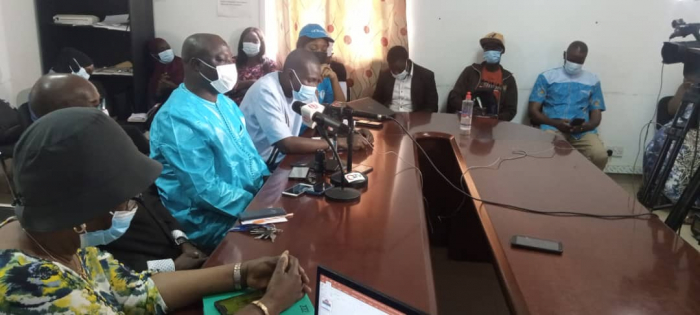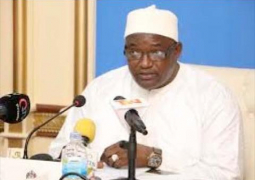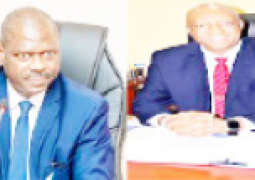
The exercise, officials say, is the surest way to guarantee protection against the polio virus.
The exercise, set to start on 19th March to 22nd March, is expected to cover a total of about 382,908 children under five against this global health threat.
At a press briefing on Wednesday at Central Medical Store, Sedat Fofana, programme manager of Expanded Programme on Immunization (EPI), reminded that the first round of polio vaccination was administered in November last year, which he described as a success.
He indicated that ‘if we skip people then that exercise will not be effective’, noting that unvaccinated would put the population at risk.
He enjoined vaccination officials to meet all communities in the country, saying eradicating a disease requires mass vaccination to keep the population safe.
“We are not having polio cases in the country, but the virus is in the country. We don’t know from whom. That’s why our Centre for Disease Control (CDC) was also able to strengthen our surveillance. Any child that has sudden paralysis we are interested.” he added.
Dr. Iheoma Onuekusi, Global Polio Eradication Initiative coordinator for The Gambia, recalled that in 1988 the Global Polio Eradication Initiative was launched across the globe.
“The objective was to eradicate Polymyositis, a disease that causes death and paralysis in children. Between 1988 and now, five of the six World Health Regions have been certified polio-free. The aim is complete eradication as we don’t want to see anybody anymore with polio in the world. So far five out six regions have been certified polio-free, only one remains that is East Mediterranean Regional office of the WHO.” she added.
Dr Onuekusi revealed that Africa got its own certificate in August 2020.
“Unfortunately, with this certificate we still have polio outbreaks even in the continent. In addition to The Gambia, another 25 to 26 countries are also experiencing outbreaks and whenever there is outbreak, there is response. So this Saturday’s exercise is one of the responses.”
Deputising for the Minister for Health, Modou Njai, director of Health Promotions and Education at the Ministry of Health, thanked partners and stakeholders for the first round of the mass vaccination exercise.
He equally thanked caregivers, parents and regional governors and all those who contributed towards making the first round of the vaccination exercise a successful one.
Director Njai again appealed to local communities to allow their children undergo the second leg of the polio vaccination, saying they are targeting children under five.
“These are children we need and Saturday some of them are not going to school. So I am appealing to parents to allow these children undergo the polio vaccination. We don’t want to miss any child in this exercise.”
Njai assured that the vaccines are safe and effective and that The Gambia is not new to this kind of mass vaccination.
Aja Kandeh, communication officer on Expanded Programme on Immunization, in a power presentation shed light on the background and some the gains made in the first round of vaccination.





